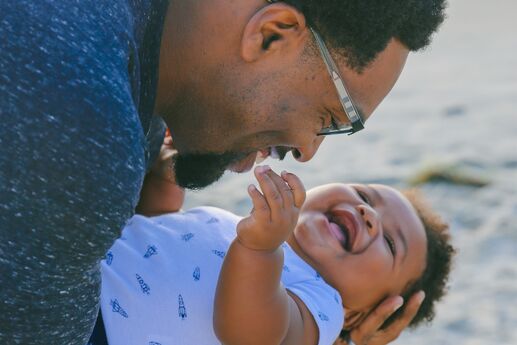How to Boost Dad-Newborn Bonding
Calling all new dads! If you’re not quite sure how to start connecting with your newborn, you’re not alone. While some parents begin bonding with their babies immediately, it’s also completely common for some parents (both mom and dad) to feel a little uncertain about how to start getting close to their baby.
But bonding is really important. Whatever the long-term effects might be, one thing’s for sure: Strong, healthy relationships will boost your baby’s development by giving him a sense of security and self-esteem. What’s more, forming those ties can start as soon as your baby is born. It's something you’ll be able to do during the course of your everyday routine. Here’s how.
Hold him
You love your baby, and your baby will love being in your arms. New dads should carry their newborns, cradle them, and keep them close to their skin for added bonding.
Massage him
Simple massages can help your baby relax and fall asleep. The key is to massage very gently. You might enjoy taking a class in infant massage at your local hospital, or reading up on the subject.
Communicate with him
Your baby might not have any idea what you’re saying, but that doesn’t mean he loves hearing the sound of your voice any less. Whether you're reading, singing, or talking to your baby (or even mimicking those adorable cooing noises), you’ll stimulate his senses and deepen your attachment.
Give him a bath
Bathing your newborn will help both of you relax after a busy day and prepare for a restful night’s sleep.
Wear your baby
When you want to be near your newborn but aren’t actually able to hold him (maybe you're typing or folding his laundry), you can wear him instead. Putting your baby in a front carrier will help him feel cozy against your chest -- just make sure his carrier offers good head and neck support.
Photo by Larry Crayton on Unsplash






